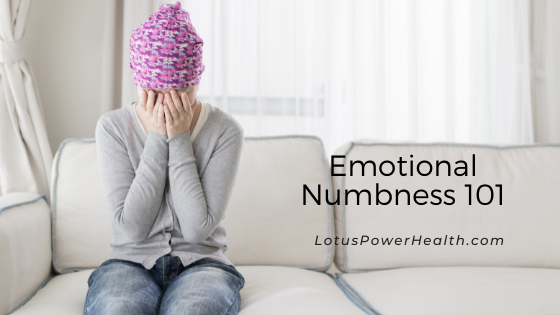It was traumatic, she couldn’t get the man’s face out of her head. She moved out of her home because she no longer felt safe there. She withdrew from her existing friendships and avoided leaving her new home because she didn’t trust strangers. A month later, one of her closest friends was killed in a car accident.
Mary was incapable of showing grief. She had emotionally detached from the situation and unable to share her feelings. She simply could no longer connect emotionally to others. She was unable to empathize with others suffering the same loss, and her relationships suffered as a result of this. Mary spent months living this way before seeking medical help and finding out it was emotional numbness.
You don’t have to go through a series of traumatic events to experience emotional numbness. However, trauma may force you to realize that you have been suffering from emotional numbness.
Often, it goes undetected until you’re in a position where others recognize that you aren’t reacting in a normal (for yourself) way. Or, it simply highlights existing signs and symptoms of emotional numbness.
The Signs & Symptoms of Emotional Numbness
- You Isolate Yourself
You avoid going out in public, you don’t want to socialize, you’re fully focused on getting from point A to point B and don’t want to entertain any other stops. You’re hiding yourself away.
- You Don’t React Or You Overreact
You can’t seem to regulate your emotions because you’re numb to them so, you either overdo it or don’t do it at all.
- You Can’t Process
While the people around you are convinced that you’re grumpy or perhaps just busy, you are so numb that you have shut down and turned off. You can’t process what’s going on around you because you can’t even hear it.
- The Last Laugh of the Laughter
You can be looking or hearing something that you recognize as funny, and you may even experience an internal chuckle, yet… it doesn’t reach your mouth. The audible laughter has faded away.
- Barely Present
You’re there, physically, but you are elsewhere emotionally and mentally.
- Fighting
You tend to pick fights because you’re trying to force yourself to feel some type of way. You say things you don’t mean, overwhelm yourself, and once it’s over you’re back to that emotional numbness.
- Risky Situations
You are more likely to seek out risky situations so you can feel something.
- Self-Medications
You’re emotionally numb, yet you continue the numbing by self-medicating with alcohol or drugs.
Treating Emotional Numbness
While it isn’t necessarily dangerous, it is unpleasant and emotional numbness can lead you down dangerous, dark paths, as ignoring your emotional health usually does. There are several approaches you can take in treating your emotional numbness.
- Avoid recreational drugs and alcohol.
- Seek support with any addiction you may have.
- Use sensory experiences to overcome dissociation.
- Find an app that will lead you through guided meditation.
There are points where you may need to seek the care of a medical professional. Seek help if you feel distressed, can’t interact with others, have an existing mental illness with worsening symptoms or you’re experiencing forgetfulness.
A medical professional can refer you for therapy, change existing medication or provide you with a prescription for an appropriate medication, as well as offer addiction help. Don’t let emotional numbness ruin your life, get help and get it under control.

